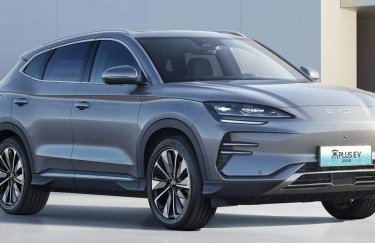
RENO, Nev. — A federal appeals court refused Wednesday to block construction of the largest lithium mine in the U.S. while it considers claims by Nevada conservationists and tribes that the government illegally approved it in a rush to produce raw materials for electric vehicle batteries.
The 9th U.S. Circuit Court of Appeals denied a request for an emergency injunction that would have prevented a subsidiary of Lithium Americas from moving forward with the project near the Oregon line at the third largest known lithium deposit in the world.
Construction was under way Wednesday, company spokesperson Tim Crowley confirmed in an email to The Associated Press.
Billions of dollars in investments are at stake in the legal battle at the forefront of so-called green energy development in the largest gold-producing state in the nation.
Neighboring California — the nation’s largest car market — plans to end the sale of new gas cars and trucks in a little over a decade, which will further drive up demand for electric vehicle batteries.
Lawyers for the mining company and the Biden administration said in court filings on Tuesday further delay was undermining efforts to combat climate change as the 2-year-old legal battle lingers and demand continues to grow for the key component in batteries for electric vehicles.
Reserves at the Thacker Pass mine, expected to begin production by the end of 2026 about 200 miles (322 kilometer) northeast of Reno, would support lithium for more than 1.5 million electric vehicles per year for 40 years, the company said.
“There are no other U.S. alternatives to Thacker Pass to provide lithium at the scale, grade or timeline necessary to begin closing the gap between the lithium available and the lithium needed to achieve the U.S.’s clean energy and transportation goals," its lawyers wrote.
On Wednesday, the San Francisco-based court scheduled expedited filing deadlines through April on the merits of the appeal, but its four-page ruling didn’t explain its rejection of the injunction.
It marked a significant setback for environmentalists and tribes trying to block the project who say they support efforts to replace fossil fuels with renewables but that the mine would destroy essential wildlife habitat and sacred cultural values.
“By the time our general appeal to the Ninth Circuit is heard, irreversible damage to the environmentally and culturally sensitive area known as Thacker Pass will have occurred unnecessarily,” John Hadder, director of the Great Basin Resource Watch, said after Wednesday’s ruling.
Opponents of Lithium Nevada Corp.’s project had filed an emergency motion with the 9th Circuit on Monday after U.S. District Judge Miranda Du in Reno rejected their latest request to put the case on hold until the San Francisco-based appellate court could hear their appeal.
“This massive open pit mine has been fast-tracked from start to finish in defiance of environmental laws, all in the name of ‘green energy,’ but its environmental impacts will be permanent and severe,” said Talasi Brooks, a lawyer for the Western Watersheds Project, said after Wednesday’s ruling.
“It is a disappointment to see valuable biological, cultural and visual resources sacrificed for a strip-mine that has been greenwashed to be good for the environment,” said Kevin Emmerich, co-founder of Basin and Range Watch.
Du ruled in Reno on Feb. 6 the Interior Department's Bureau of Land Management complied with federal law — with one exception — when it approved plans for the mine in January 2021. On Friday, she refused the request for an injunction pending appeal.
Judge Du “reasonably weighed the public interest and balance of harms, noting that the lithium from this mine is a critical component of electric vehicle batteries, and thus an important domestic resource for reducing greenhouse gas emissions," Biden administration lawyers representing BLM said in appellate filings Tuesday.
Lithium Nevada said it already has invested over $150 million in the mine, and projects capital costs of $2.3 billion for its first phase.
A Nevada rancher filed the first lawsuit in early 2021 seeking to block the 5,000-acre project with an open-pit mine as deep as a football field.
Multiple Native American tribes have tried unsuccessfully to persuade Judge Du that the development will destroy sacred cultural values tied to the nearby site of a massacre of dozens of their ancestors in 1865.
A half-dozen conservation groups say habitat critical to dwindling sage grouse, pronghorn antelope, threatened cutthroat trout and others could be lost forever as a result of the project. The groups say the BLM rushed without adequate environmental review in the final days of former President Donald Trump's administration.
“Together, these voices paint a powerful picture of the values at stake from the project that (Lithium Nevada) is now trying to greenwash," the opponents' lawyers wrote in court briefs late Tuesday.
Environmentalists argue a 9th Circuit ruling against an Arizona project in 2022 means the Nevada project can’t dispose of millions of tons of waste as planned under an 1872 law. Du didn’t nix BLM’s approval of the mine but told the agency to decide whether the company has rights to dispose of waste on 1,300 acres of neighboring land.
The opponents said any lithium mined at the site wouldn’t be available to make electric vehicle batteries for at least three years.
“Although (Lithium Nevada) asserts that the need for lithium outweighs all other factors, that there may be some future benefit from using lithium does not override the rule that the public’s interest in preserving precious, unreplenishable resources must be taken into account in balancing the hardships.”
Sourse: abcnews.go.com






